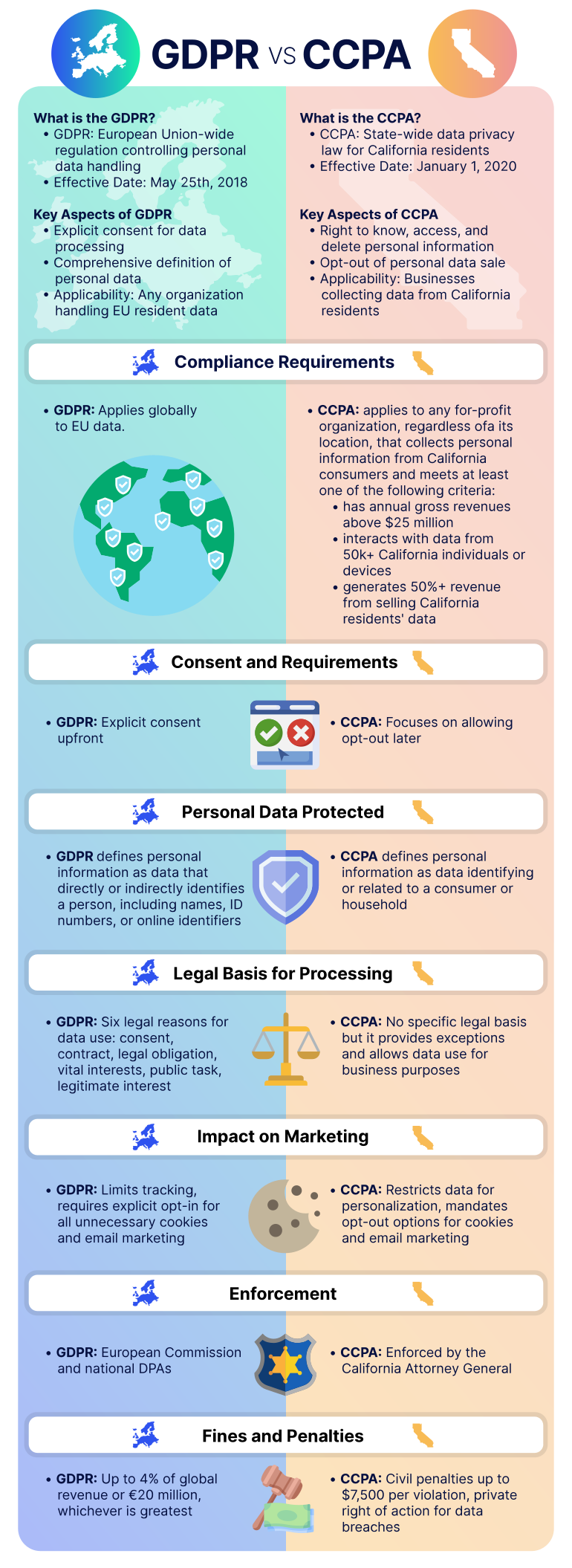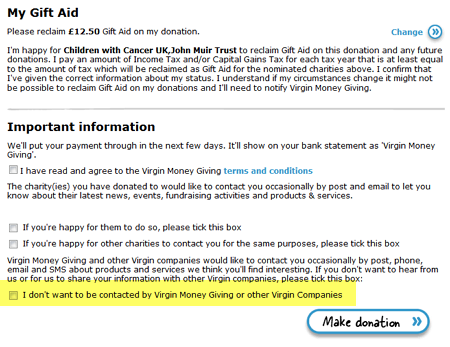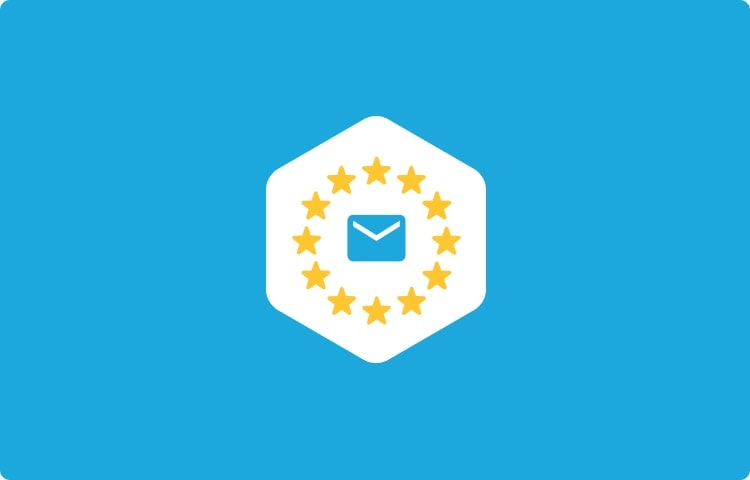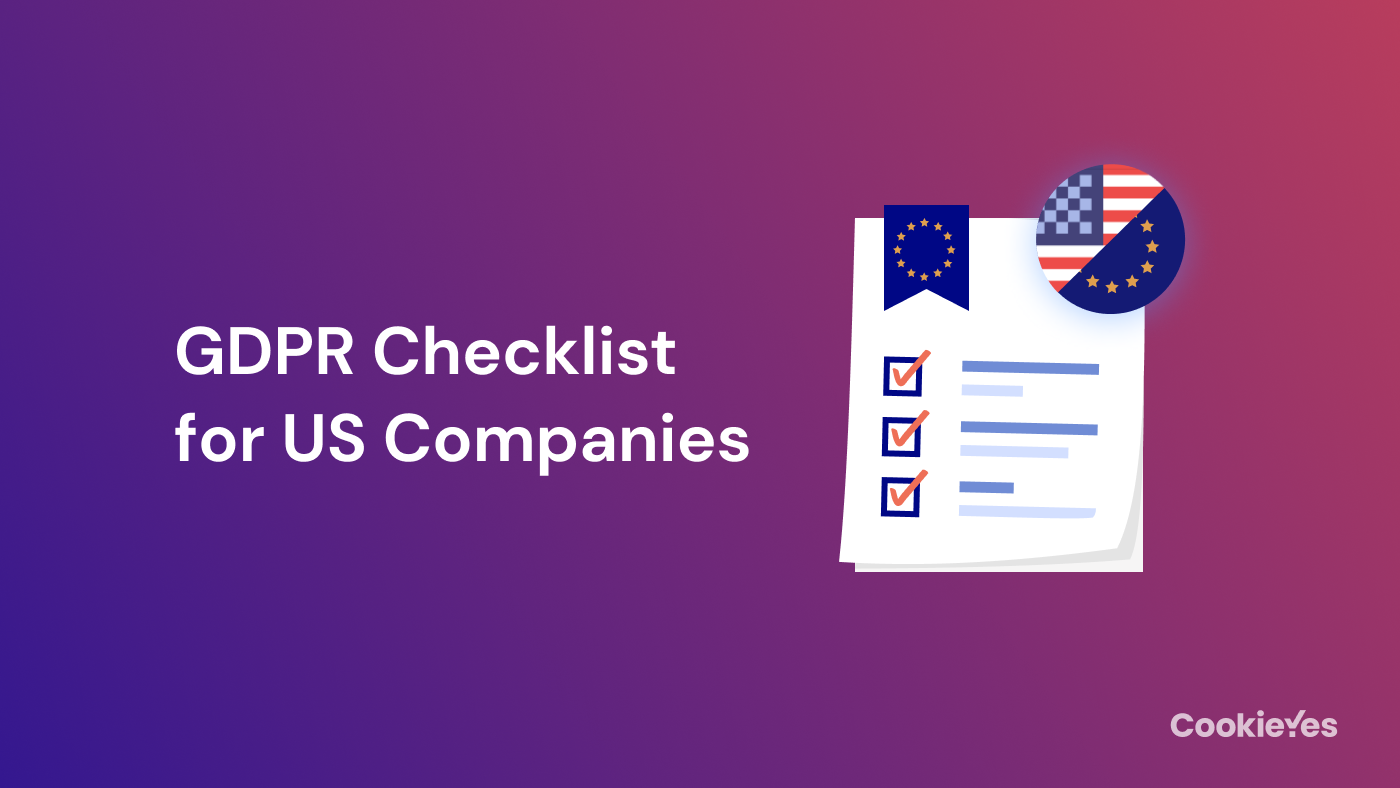GDPR impacts email marketing in the USA significantly. It brings strict rules on data privacy.
Businesses must adapt or face penalties. The General Data Protection Regulation (GDPR) is a European law. But its reach extends beyond Europe. If you email European customers from the USA, you must comply with GDPR. This law stresses user consent and data protection.
It demands transparency in how you collect and use data. For email marketers in the USA, this means changes. You need clear opt-ins and easy opt-outs. You must also protect user data securely. Ignoring GDPR can lead to heavy fines and damage to reputation. Understanding GDPR is crucial for successful email marketing in today’s global environment.
Introduction To Gdpr
The General Data Protection Regulation, or GDPR, is a significant piece of legislation. It was introduced in the European Union (EU) in May 2018. GDPR aims to protect the personal data of EU citizens. This regulation has a broad impact globally, including on email marketing practices in the USA.
What Is Gdpr?
GDPR is a regulation designed to safeguard personal data. It applies to all companies processing data of EU citizens, regardless of where the company is located. This means that USA-based businesses must comply if they handle data from EU residents. The key principles of GDPR include:
- Lawfulness, fairness, and transparency
- Purpose limitation
- Data minimization
- Accuracy
- Storage limitation
- Integrity and confidentiality
- Accountability
Importance Of Gdpr
GDPR holds significant importance for several reasons. For one, it provides greater control to individuals over their personal data. It ensures that companies are transparent about data collection and usage. This builds trust between businesses and consumers.
For businesses, complying with GDPR is crucial. Non-compliance can result in hefty fines. These fines can be up to 20 million euros or 4% of annual global turnover, whichever is higher. Therefore, understanding and adhering to GDPR is essential for any business dealing with EU data.
In summary, GDPR affects how USA businesses approach email marketing. By ensuring compliance, businesses can avoid penalties and build consumer trust.
Gdpr Vs. Us Privacy Laws
Understanding the differences between GDPR and US privacy laws is crucial. Both aim to protect consumer data, but they have different approaches. This affects how email marketers operate within the USA. Knowing these differences helps ensure compliance and avoid penalties.
Key Differences
GDPR stands for General Data Protection Regulation. It is a comprehensive law in the European Union. It focuses on data protection and privacy for all individuals within the EU. In contrast, the USA does not have a single federal law like GDPR. Instead, it has a patchwork of state and federal laws.
GDPR applies to any organization processing the personal data of EU citizens. US laws vary by state and sector. For example, California has the CCPA, while financial institutions follow the GLBA. These differences impact email marketing strategies and compliance requirements.
Compliance Requirements
GDPR requires explicit consent from individuals before sending marketing emails. This means subscribers must opt-in. You must also allow them to easily opt-out. US laws, such as CAN-SPAM, require a clear opt-out mechanism. But they do not always demand explicit consent.
Under GDPR, you must provide clear information about data collection and usage. This includes a privacy policy and contact details of the data protection officer. In the USA, the requirements vary. Some states have strict rules, while others are more lenient. Always keep records of consent and ensure transparency in your communications.
Impact On Email Marketing
The General Data Protection Regulation (GDPR) has brought many changes. It affects email marketing, even in the USA. Understanding these impacts is crucial for compliance and success.
Consent Requirements
One major change is the need for clear consent. Marketers must get explicit permission from users before sending emails. This means no more pre-checked boxes or hidden agreements.
Users must actively agree to receive emails. This can be done through a simple checkbox. It should be unmarked by default. Marketers must also keep records of this consent. This ensures they can prove compliance if needed.
Data Handling Practices
GDPR also affects how data is handled. Marketers must store user data securely. They must also ensure it is accurate and up-to-date. Users have the right to access their data. They can request changes or deletions. This means marketers must have systems in place to handle these requests.
Data should be encrypted and stored securely. Regular audits can help ensure compliance. Marketers should also be transparent about their data practices. This builds trust with users and ensures compliance with GDPR.

Credit: www.cookiebot.com
Building Gdpr-compliant Email Lists
Building a GDPR-compliant email list is essential for businesses in the USA. The General Data Protection Regulation (GDPR) sets strict guidelines. These guidelines ensure that email marketing practices protect user data and respect privacy. Even if your business is based in the USA, GDPR affects you if you have EU subscribers. Let’s explore the key strategies and practices to maintain compliance.
Opt-in Strategies
GDPR requires explicit consent from subscribers. This means they must actively choose to receive your emails.
- Double Opt-In: Send a confirmation email to verify the subscriber’s intent.
- Checkboxes: Use unchecked boxes for consent on sign-up forms.
- Clear Language: Explain what subscribers are signing up for in simple terms.
These strategies help ensure that your subscribers genuinely want to hear from you.
Maintaining Subscriber Consent
Once you have obtained consent, it is crucial to maintain it. This involves regular practices to keep your list compliant.
- Regular Updates: Periodically ask subscribers to update their preferences.
- Easy Unsubscribe: Provide a clear and simple way for users to opt-out.
- Document Consent: Keep records of when and how consent was given.
Maintaining consent helps build trust with your audience and ensures compliance.
| Strategy | Description |
|---|---|
| Double Opt-In | Send a confirmation email to verify intent. |
| Checkboxes | Use unchecked boxes for consent on forms. |
| Clear Language | Explain sign-up details in simple terms. |
Following these practices helps to ensure your email marketing strategies are GDPR-compliant. This not only keeps you within legal boundaries but also fosters trust with your audience. GDPR compliance is an ongoing process and requires regular attention to detail.
Crafting Gdpr-compliant Emails
Creating emails that comply with GDPR can seem challenging. But, with the right guidelines, you can ensure your email marketing aligns with these regulations. This section will guide you on how to craft GDPR-compliant emails effectively.
Content Guidelines
To meet GDPR requirements, your emails must follow specific content guidelines. Always use clear and simple language. Avoid legal jargon and complex words. Make your message easy to understand. Clearly state the purpose of the email. Ensure the content is relevant to the recipient. Do not include unnecessary information. Keep your emails concise and to the point.
Transparency In Communication
Transparency is crucial in GDPR compliance. Inform recipients why they are receiving the email. Explain how their data will be used. Provide details on how they can manage their preferences. Make it easy for them to unsubscribe. Include a clear unsubscribe link in every email. Ensure this link is easy to find and use.

Credit: www.zettasphere.com
Managing Data Subject Rights
Managing data subject rights is crucial for GDPR compliance. It’s important for businesses, including those in the USA, to understand these rights. This section will explain how to handle access and deletion requests, and data portability.
Access And Deletion Requests
Under GDPR, individuals can request access to their personal data. Businesses must provide this information without delay. They have 30 days to respond. This ensures transparency and trust.
Individuals can also request deletion of their data. This is known as the “right to be forgotten.” Companies must delete personal data if the individual withdraws consent or objects to processing.
Failure to comply can lead to severe penalties. It’s essential to have a process in place for handling these requests efficiently.
Data Portability
Data portability allows individuals to receive their data in a structured format. They can also transfer this data to another service provider. This right ensures that individuals have control over their data.
Businesses must provide the data in a commonly used and machine-readable format. This ensures that the data can be easily transferred and used by another company.
Managing data subject rights under GDPR requires diligence. Companies must be prepared to handle these requests promptly and accurately.
Tools And Technologies
The General Data Protection Regulation (GDPR) has far-reaching effects on email marketing, even in the USA. To navigate these regulations, businesses need the right tools and technologies. These tools help ensure compliance and maintain effective marketing strategies. Let’s explore some of the essential tools and technologies available.
Email Marketing Platforms
Email marketing platforms play a crucial role in GDPR compliance. They help manage subscriber lists and consent forms. Many platforms offer features to track user consent. They also allow easy access to data for updates or deletions. Popular platforms include Mailchimp, Constant Contact, and Sendinblue. These platforms provide GDPR-compliant templates and tools. They also ensure secure data storage and processing.
Compliance Software
Compliance software is essential for managing GDPR requirements. These tools help businesses stay compliant with data protection laws. They offer features like data mapping, risk assessments, and audit trails. Tools like OneTrust, TrustArc, and GDPR365 are popular choices. They provide comprehensive solutions for data privacy management.
Compliance software simplifies the process of managing consent. It ensures that businesses can easily track and document user permissions. This is vital for GDPR compliance. It also helps in responding to data subject requests efficiently. Having the right compliance software can make a significant difference. It ensures that your email marketing efforts are both effective and lawful.
Consequences Of Non-compliance
The General Data Protection Regulation (GDPR) has far-reaching implications, even for businesses in the USA. Non-compliance with GDPR can have serious consequences. Companies must understand these risks to avoid potential pitfalls.
Fines And Penalties
Non-compliance with GDPR can lead to hefty fines and penalties. The fines can be up to 4% of a company’s annual global turnover or €20 million, whichever is higher. This can be a significant financial burden for businesses.
Even smaller violations can result in substantial penalties. For example, failing to obtain proper consent for email marketing can incur fines. The cost of non-compliance is high, making it essential for businesses to adhere to GDPR regulations.
Reputation Damage
Non-compliance doesn’t only result in financial penalties. It can also cause severe reputation damage. Customers are increasingly aware of data privacy issues. A breach can lead to loss of trust, which is hard to regain.
Negative publicity can spread quickly, especially in the digital age. A damaged reputation can lead to lost customers and reduced revenue. Protecting your company’s reputation is as important as avoiding fines.
Best Practices For Us Businesses
The General Data Protection Regulation (GDPR) has a significant impact on email marketing worldwide, including in the USA. Although GDPR is a European regulation, it applies to any business that handles the data of EU citizens. To stay compliant and ensure the success of their email marketing efforts, US businesses must adopt best practices. Below are key practices that can help.
Regular Audits
Conducting regular audits is essential. Check all data collection processes. Ensure they align with GDPR requirements. Identify and rectify any compliance gaps. Regular audits help maintain data integrity. They also protect your business from potential fines.
| Audit Task | Frequency |
|---|---|
| Review Data Collection Methods | Quarterly |
| Check Consent Records | Monthly |
| Update Privacy Policies | Annually |
Employee Training
Employee training is crucial for GDPR compliance. All staff should understand data protection laws. Training should cover data handling, storage, and sharing policies. Regular sessions help keep everyone informed.
- Conduct initial training for new hires.
- Provide annual refresher courses.
- Include practical examples and scenarios.
Using a combination of regular audits and thorough employee training ensures your business stays GDPR compliant. It also builds trust with your audience and enhances your email marketing efforts.
Future Of Email Marketing Under Gdpr
The General Data Protection Regulation (GDPR) has reshaped email marketing practices globally. Though a European Union regulation, it impacts email marketing in the USA significantly. Businesses must adapt to these changes to remain compliant. Understanding the future of email marketing under GDPR is essential for success.
Evolving Regulations
GDPR is not static. It evolves to address new privacy concerns. Businesses must stay updated with these changes. Failure to comply can result in heavy fines. The focus is on protecting consumer data and ensuring transparency.
GDPR requires businesses to obtain explicit consent for email marketing. This means clear, affirmative actions from recipients. Pre-ticked boxes and passive acceptance are not enough. Marketers must document this consent and provide easy opt-out options. Regular audits and updates to consent records are crucial.
Trends To Watch
Email marketing strategies are changing under GDPR. Here are some trends to watch:
- Personalization: Consumers expect personalized content. GDPR encourages marketers to use data responsibly to create relevant messages.
- Data Minimization: Collect only necessary data. This reduces risk and builds trust with recipients.
- Transparency: Be clear about data usage. Inform recipients about how their data will be used.
- Security Measures: Implement strong security protocols. Protect consumer data from breaches and misuse.
GDPR compliance can be challenging. Yet, it offers opportunities to build trust and improve relationships with consumers. By staying informed and adapting practices, businesses can succeed in the evolving landscape of email marketing.

Credit: securiti.ai
Frequently Asked Questions
What Is Gdpr And How Does It Impact Email Marketing?
GDPR stands for General Data Protection Regulation. It impacts email marketing by requiring consent for data collection.
Do Us Companies Need To Comply With Gdpr?
Yes, if they handle data of EU citizens. Compliance is necessary to avoid penalties.
How Can Us Companies Get Gdpr Consent For Emails?
Use clear opt-in forms. Explain data usage and obtain explicit consent from subscribers.
What Are The Penalties For Non-compliance With Gdpr In Email Marketing?
Penalties can be severe. Fines may reach up to €20 million or 4% of global revenue.
Can Us Companies Use Purchased Email Lists Under Gdpr?
No, purchased lists lack proper consent. Always build your own list to ensure compliance.
Conclusion
GDPR impacts email marketing in the USA significantly. Companies must ensure compliance. Protect customer data carefully. Gain explicit consent before sending emails. Clear privacy policies are crucial. Non-compliance can lead to hefty fines. Respect customer preferences. Build trust by being transparent.
Use GDPR as an opportunity. Enhance your email marketing strategies. Engage your audience with responsible practices. Stay informed about updates. This helps keep your business compliant. Ensure your email marketing efforts are effective and lawful.



Leave a Reply